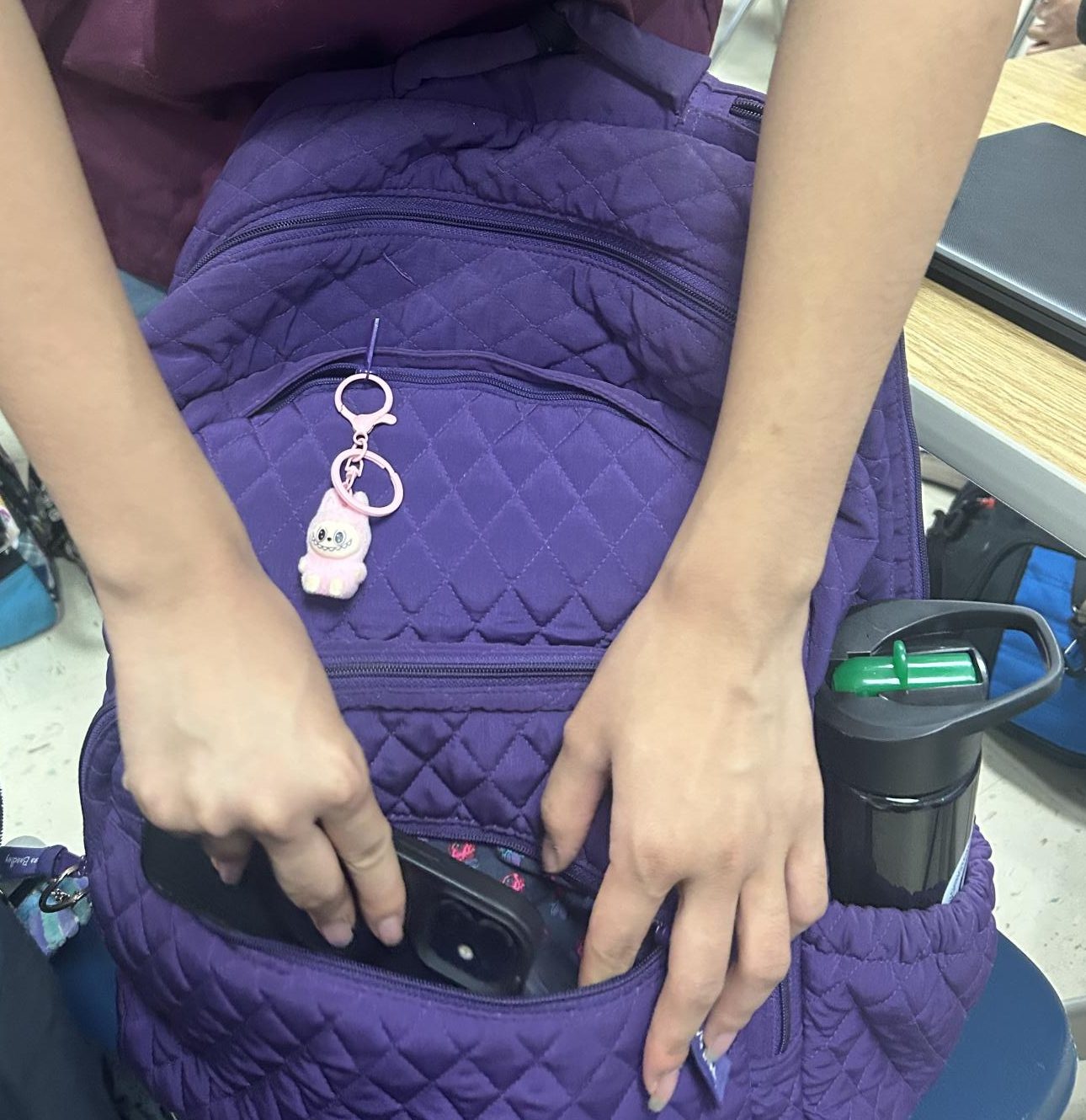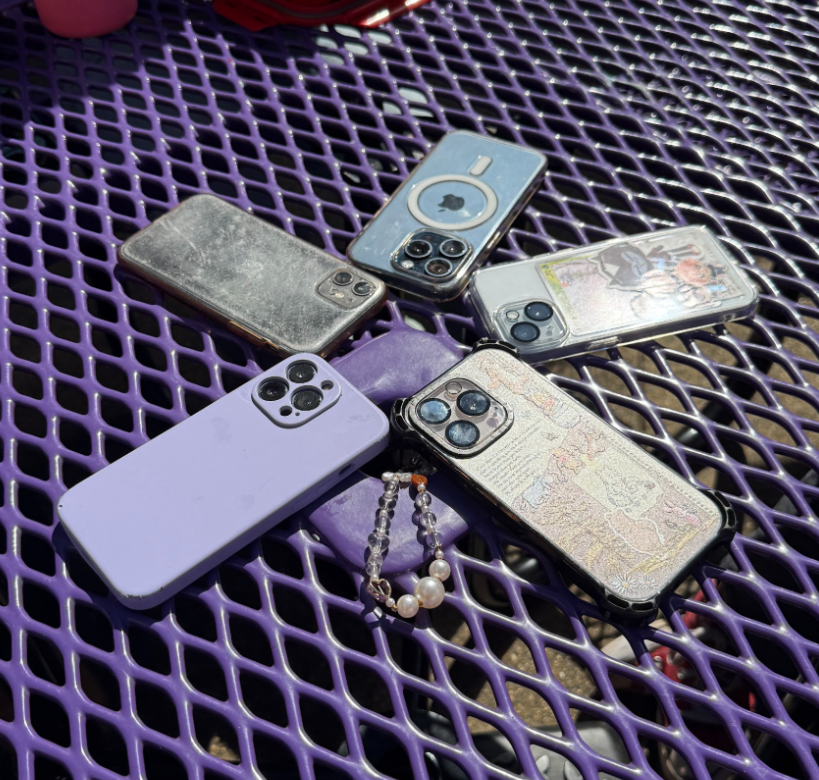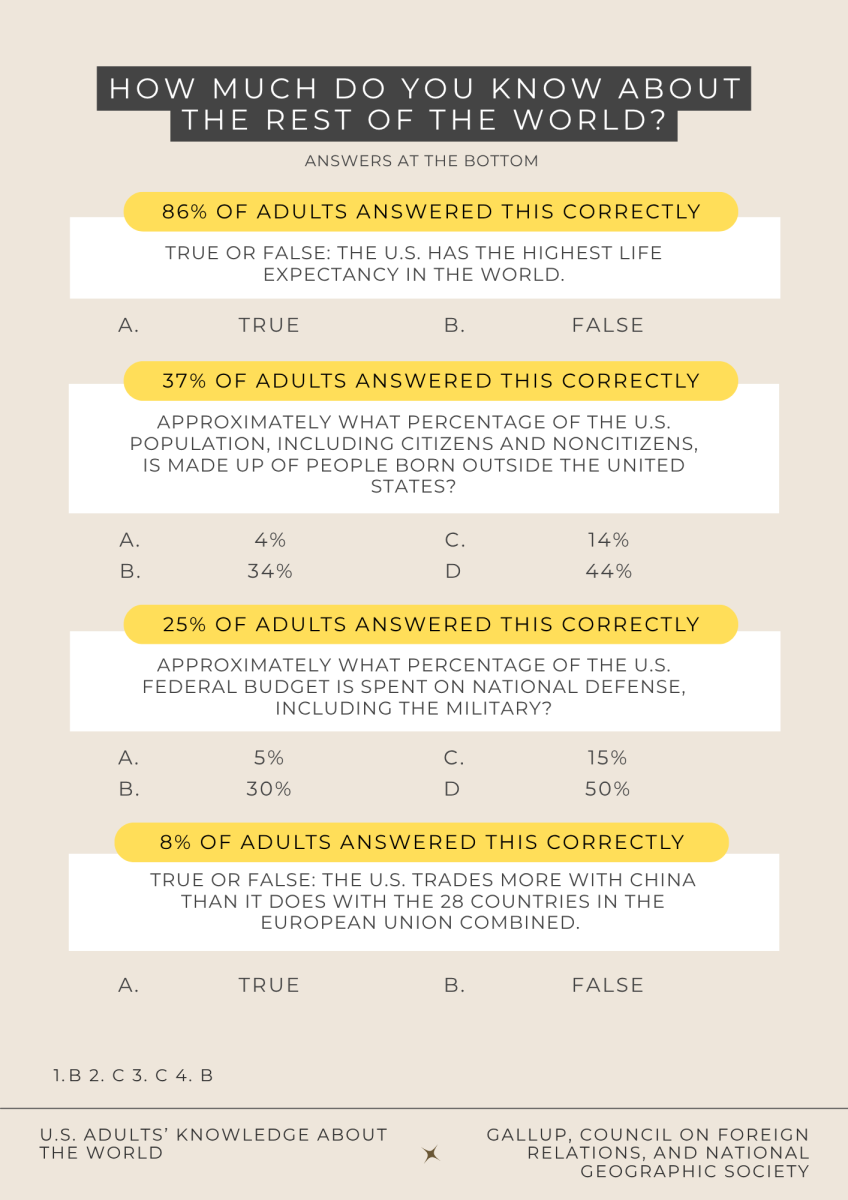RINGGGG! The first period bell goes off and speakers turn on echoing that devices are “off and away for the day.” The announcements remind students to put their phones in their bag, preventing students’ from using them during the whole school day, except lunches.
FCPS’ new cellphone policy, implemented for the 2025-2026 school year due to a state law, requires students to have their personal devices and accessories off and away from bell to bell, excluding lunch. This encourages students to interact with their classmates, promotes focus in class and assists with better mental health.
According to Pew Research Center, 57% of 18 to 29-year-olds favor banning cellphones during class in middle and high school, compared to 2024 when it was at 45%. Two-thirds of U.S. adults surveyed say banning cellphones during the entire school day would positively impact student’s social skills, grades and behavior in class.
Per the Mayo Clinic Health System, when people set down their devices, it makes them more emotionally available. In addition to fostering a sense of belonging and support, this can help with coping through difficult times, managing stress and warding off depression and anxiety.

Besides improved mental health, a lack of phones during the school day allows for better focus and engagement in class. Researchers from the College of Liberal Arts at Auburn University concluded that there was an increase in students’ interest in classes and a desire to be there when phones were not allowed in class. Furthermore, students from the research had reported through surveys and focus groups that they had improved grades, focus and social interaction. The study also mentioned a decrease in incidents of cheating.
With the evolution of social media and technological devices, students can become susceptible to using artificial intelligence (AI) or cheating in other ways. The phone policy mitigates this issue by allowing teachers to teach without having to interrupt their lessons to call students out for being on their phone or looking to see if they are using it during assessments.
Moreover, social media can affect adolescents’ self-esteem and relationships per the National Library of Medicine. The number of teenagers with a smartphone is increasing with 54% of teens saying it would be hard to give up social media, according to Pew Research Center. Not all social media content is positive as it can be associated with normalization of bad behavior, leading to social comparison and negative interactions like cyberbullying. Being off your phone, even if it’s just for a few minutes, can be a mood booster.

Although the phone policy is good because it reduces phone usage, The University of Texas Permian Basin says that the dopamine that scrolling releases can also offer a sense of relief for students when stressed from classes and tests. There are still benefits to phone usage and thus the policy that allows students to use their phones at lunch is necessary.
As necessary, the phone ban shouldn’t be viewed as such a negative policy but, instead, for regulation of increased phone usage during school hours. A growing number of people begin favoring the phone policy because phones should not be used in class and the policy helps us be engaged during discussion and lessons with less interruption.









